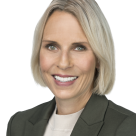An Edmonton daycare is defending a policy that may raise a few eyebrows. It has asked parents to bring a helmet to protect children in its playground.

The policy also states it is the parents’ responsibility to provide a helmet and to upgrade it in order to fit their children’s growing needs.
“You feel like you protect the child,” daycare owner Mircea Bailesteanu said.
Bailesteanu opened up Cambridge Daycare 20 years ago and said over time the needs of children have changed.
“Some kids, as I said, are not aware of their environment, especially when they are very young – babies and toddlers.”
Bailesteanu said some parents bring helmets, some don’t.
The daycare also provides adjustable helmets for the tricycles but Bailesteanu said it doesn’t guarantee 100 per cent protection — he said a couple of years ago a child did get injured.

Get weekly health news
“One child was on the bike, another child was pushing the bike,” Bailesteanu said. “Guess who got hurt? Not the child on the bike but the child behind the bike who tripped and (fell) behind the bike.”
- Calgary pedestrian, 70, killed in collision with semi in Panorama Hills
- Toddler in stroller dies after being hit by Jeep in south Calgary: ‘Tragic loss of life’
- Much of Alberta could see 10 to 30 cm of snow this week
- ‘Beyond horrific’ crash kills Calgary father, severely injures daughter in Edmonton
The outdoor space at Cambridge Daycare is small and Bailesteanu stressed safety is the top priority. There are no ladders or monkey bars and the ground is covered with rubber matting.
In Alberta, health regulations state children should not wear helmets on playground equipment or anything else that can get caught.
There is no specific province-wide helmet policy for daycares but they are recommended if bikes are on site.
A preschool educator that preaches freedom on the playground said helmets are overkill and said young children need to learn how to navigate risk.
Adrian Merrick has hosted caregiver and parent workshops on risky play he is also a program coordinator at Norwood Family and Child Resource Centre.
“I think there are a lot of things that happen naturally in childhood like tripping and falling,” Merrick said, “that a helmet isn’t really going to help mitigate.”
Merrick said toddlers are clumsy and “top-heavy” and a helmet can add to their discomfort.
“Risky play is a bit of a pushback to the bubble-wrap sort of philosophy.”
The educator said so-called “helicopter parents” have graduated to “lawnmower parents” and push everything out of the way to clear a path for their children.
He stressed children will ask for help when they want it.
“There are still those parents that tend to follow their children around and want to lift them up onto everything.”
Merrick said adults must change their reaction and language on playgrounds — instead of telling a child to be careful and not to climb too high, he said try this:
“I’m here if you need me.”
“It’s not about sort of that, Lord of the Flies — there’s chaos and pandemonium everywhere and fires in the corner. It really is about just allowing children to explore on their own. Kids are really, really great at knowing their limits.”
Merrick said most care-provider insurance policies have a provision for risky play.
Bailesteanu called the helmet policy another step in protection and said it will continue to be reviewed. He said he also believes in risky play, but in a controlled environment.
“Do we need to put elbow pads, knee pads, steel toes, bubble wrap? Not really.”







Comments
Want to discuss? Please read our Commenting Policy first.